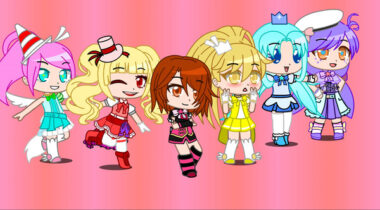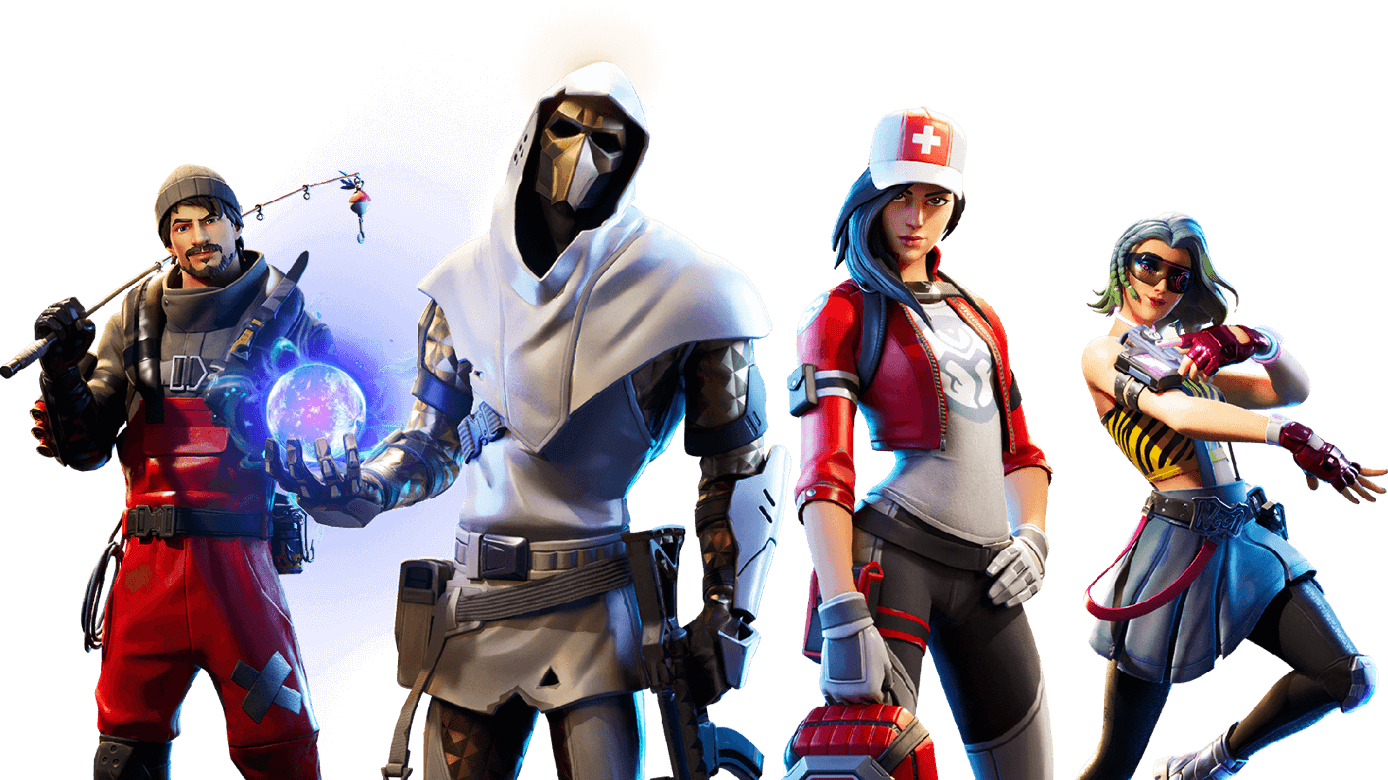The world of Gacha Cute offers an endless canvas for creativity, where players can design characters that range from adorable to awe-inspiring. However, while the game provides a vast array of options for customization, it can be a daunting task for players to figure out how to create truly unique and expressive characters. In this article, we will explore a specific issue within Gacha Cute: the challenge of achieving consistent and appealing character design. We will cover the obstacles players commonly face and provide effective strategies to overcome them, ensuring your characters stand out in both design and personality.
Introduction
Gacha Cute is a popular game that combines the excitement of character creation with the satisfaction of self-expression. With its wide selection of outfits, hairstyles, and accessories, players can easily get carried away in the customization process. However, creating a character that feels balanced, cohesive, and expressive requires more than simply choosing items from the menu. Many players struggle with the challenge of making their designs feel “complete,” leading to frustration and a lack of satisfaction with their creations. This article will dive deep into the specific issues players face when designing their characters and offer practical tips to help you elevate your Gacha Cute creations to the next level.
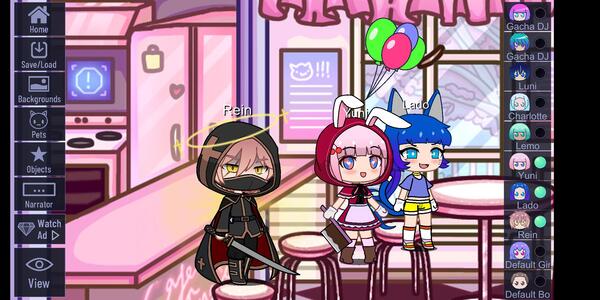
Gacha Cute is a popular game that combines the excitement of character creation with the satisfaction of self-expression
Navigating the Customization Interface
The first major hurdle players face when creating a character is the sheer amount of options available within Gacha Cute’s customization menu. With so many tabs and categories, it can be overwhelming to know where to start. Understanding the layout of the interface and how each section contributes to the overall design is crucial to streamlining your process.
Key Sections of the Customization Menu
Head and Face Features: This includes options for changing the shape, size, and color of your character’s eyes, mouth, and other facial features.
Clothing and Accessories: Here, players can choose from a variety of outfits and add accessories like hats, glasses, and jewelry to complete the look.
Hair and Skin: Customizing hair length, color, and texture, as well as adjusting the skin tone, adds another layer of detail to your design.
Pro Tips for Streamlining Your Process
Start with the basics: Begin with a simple head and body before adding accessories or background elements.
Save your design frequently: This prevents loss of progress and allows you to experiment with different looks without worrying about losing changes.
Balancing Your Character’s Theme
One of the biggest challenges in Gacha Cute is keeping a character’s design cohesive. Without a clear theme, your character can feel disjointed and cluttered, which can undermine the appeal of the final result. Whether you’re aiming for a fantasy look or something more modern, staying true to a theme will help tie all your design choices together.
Choosing a Theme
Fantasy/Adventure: For a magical or mythical character, you might use bold colors, ornate accessories, and fantastical backgrounds.
Modern/Casual: A more casual design will feature simple clothing and accessories that reflect contemporary fashion.
Kawaii (Cute) Style: This theme focuses on pastel colors, oversized accessories, and exaggerated proportions to create a cute, childlike aesthetic.
How to Maintain Consistency
Pick a color palette: Stick to 2-3 main colors to avoid overwhelming the design.
Use complementary accessories: Choose accessories that enhance, rather than detract from, the main outfit.
Creating Meaningful Hairstyles
Hairstyles are one of the most iconic features of any Gacha Cute character, but getting them right can be a tricky task. Whether you prefer bold, dramatic hairstyles or soft, natural looks, achieving the perfect style can sometimes feel like a trial and error process.
How to Choose the Right Hairstyle
Match the theme: Make sure the hairstyle complements the overall theme of your character.
Consider the face shape: A well-chosen hairstyle can enhance your character’s facial features and create balance.
Tips for Experimenting with Hair
Layering and Accessories: Combine different hair pieces to create volume or texture. Use hairpins, headbands, or bows to add extra flair.
Use contrasting colors: Adding highlights or streaks of color can add depth and visual interest to the hairstyle.
Mastering Facial Expressions
Facial expressions play a critical role in conveying a character’s personality. In Gacha Cute, the wide variety of eyes, mouths, and other facial features allows for a great deal of flexibility, but it can also be difficult to find the right combination that reflects your character’s emotions.
Understanding Eye Shapes and Emotions
Big, round eyes generally suggest innocence or excitement.
Narrow, angular eyes can evoke a sense of confidence or mystery.
Achieving Expressive Faces
Match eyes with the mouth: Choose eye shapes and mouths that complement each other. For example, a smiling mouth pairs well with round eyes, while a smirk looks better with sharper eye shapes.
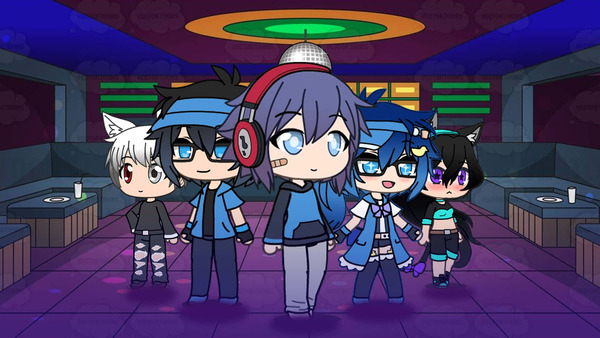
Choose eye shapes and mouths that complement each other
Add subtle details: Eyebrows, blush marks, and cheek highlights can help reinforce your character’s expression.
Layering Clothing and Accessories
One of the most fun but challenging aspects of Gacha Cute is layering clothing and accessories. Adding too many items can create a cluttered look, while not enough can make your character appear incomplete. Striking the right balance is key to achieving a polished design.
How to Layer Effectively
Start with the outfit: Select the main piece of clothing and build around it.
Add accessories in moderation: Avoid going overboard with items like necklaces, bags, or hats—pick just a few to create visual interest.
Common Layering Mistakes to Avoid
Over-cluttering the character: Too many accessories or layers can draw attention away from the character’s main features.
Clashing styles: Make sure that each item works within the character’s theme to maintain a cohesive look.
The Role of Backgrounds
Backgrounds can significantly impact the mood of your character design. They provide context, depth, and help to tell a story about your character. However, selecting the wrong background can make the character feel detached or overshadowed.
How to Choose the Right Background
Match the theme: For a fantasy character, a mystical landscape works well, while a casual character might feel more at home in a simple interior setting.
Don’t overpower the character: The background should complement, not compete with, the character design.
Tips for Background Integration
Use subtle gradients or solid colors to keep the focus on your character.
Avoid overly busy backgrounds that could distract from your character’s features.
Using Color Theory to Enhance Design
Color is a powerful tool in design, and understanding color theory can elevate your character’s appeal. By using colors that harmonize or contrast effectively, you can create a more visually pleasing and dynamic design.
Basic Color Theory for Gacha Cute
Complementary colors are opposites on the color wheel (e.g., red and green), and they create a vibrant contrast.
Analogous colors are next to each other on the wheel (e.g., blue and purple), and they tend to create a harmonious, calm effect.
How to Choose Colors for Your Character
Use a limited palette to maintain harmony and prevent the design from feeling chaotic.
Play with contrasts to highlight specific features like the eyes or accessories.
Understanding the Importance of Poses
The pose you select for your character can dramatically influence how they are perceived. Poses convey attitude, personality, and energy, making it essential to choose one that aligns with the character you are designing.
Popular Poses and Their Meanings
Confident poses often feature a strong, upright posture and assertive gestures.
Playful poses may show the character with one hand on their hip or in a casual stance.
How to Select the Right Pose
Consider the character’s personality: A shy or reserved character will look best with a more neutral or seated pose, while a confident character will benefit from an action-oriented stance.
Maintain balance with the outfit: Ensure the pose doesn’t overshadow the clothing and accessories.
Final Adjustments and Refinements
Once you’ve completed the character design, it’s time to make final adjustments. These tweaks can make a huge difference in the overall appeal of the character.
Refining the Design
Check for balance: Make sure the character’s head, body, and accessories are proportionate and in harmony.
Adjust small details: Fine-tune facial expressions, clothing fit, and hair texture for a more polished look.
Saving and Sharing Your Creation
Once you’re satisfied with your design, Gacha Cute allows you to save your creation and share it with others. Join online communities to get feedback and showcase your character designs.
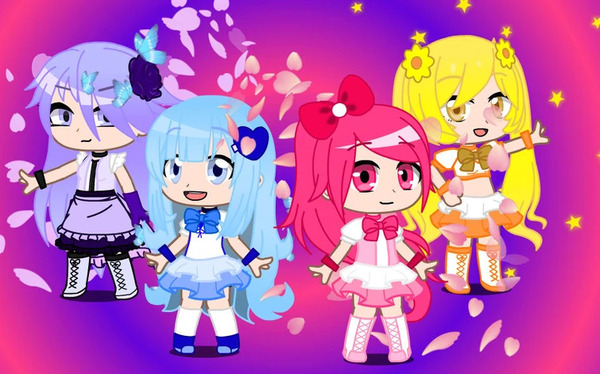
Once you’re satisfied with your design, Gacha Cute allows you to save your creation and share it with others
Conclusion
Character creation in Gacha Cute is an exciting and rewarding process, but it also comes with its challenges. Achieving a well-balanced, cohesive design requires attention to detail and a solid understanding of customization tools, color theory, and character personality. By following the tips and strategies outlined in this article, players can overcome common obstacles and create characters that are both visually stunning and full of personality.

